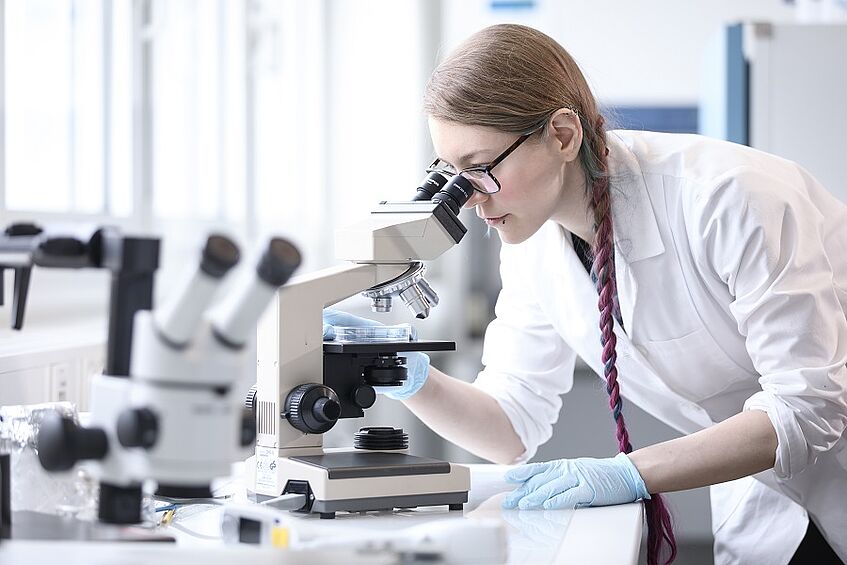Biological Chemistry (Master)

© Universität Wien / derknopfdruecker.com
In addition to completing their chosen subject specialisation, students of the master’s programme in Biological Chemistry complement their education by choosing focus areas from other related subjects of chemistry, molecular biology or applied food chemistry, according to their interests. Therefore, graduates have a high level of competences in all fields that require experts for an integrated application of chemical and molecular biological methods and ways of thinking.
Master of Science
Degree Programme Code: 066 863
4 semesters / 120 ECTS credits
Language: German
NO entrance examination
Facts & Figures
- Students: n.a.
- Graduates in the last academic year: n.a.
- Number of semesters needed for graduation (median): n.a.
Data updated on: 03.12.2024
Attention
Instruction Language German
Please note that the instruction language of this programme is German. To start the degree programme, you need to hold a certificate of German proficiency on C1 level.
Admission Procedure
Information about the admission procedure
Information on Previous Studies:
In any case eligible degree programmes at the University of Vienna:
Getting started
Getting Informed
Study Programme
The master's programme is divided into several modules, or groups of modules. It starts with a harmonisation phase and a specialisation module, where students can choose between Chemical Biology and Food Chemistry. This is followed by an elective module, allowing students to broaden their knowledge in the field. To successfully complete the master’s programme, students have to write a master's thesis and pass a master's examination.
Five Concepts
which you will deal with during your studies:
- Genome research
- Genetics
- Immunology
- Biotechnology
- Food chemistry
... and many more.
Overview of the programme structure & topics
Here you find the current offer of courses for this programme to gain better insight into the topics and structure. For more information please click on the respective level.
After Graduation
Graduates with a subject specialisation in chemical biology can pursue a career in the following occupational fields:
- academic career in private and public higher education and research institutions (in the fields of chemistry, biology, or medicine with a focus on biochemistry)
- chemical and pharmaceutical laboratories and biotechnology (from start-ups to large-scale industry)
- public administration in the fields of chemistry, environment and medicine (e.g. in risk assessment, genetic engineering and infection biology)
- product development, production and quality control in the chemical and pharmaceutical industry
- product management for chemical, biomedical and pharmaceutical companies
- molecular biological and chemical analysis, medical and environmental diagnostics (industry, clinics, private companies)
- patent sector (national/international organisations and companies)
- consulting.
Graduates with a subject specialisation in food chemistry can pursue a career in the following occupational fields:
- research, development and control laboratories of the food industry
- commercial laboratories
- public and private food control
- research at universities and other research institutions
- as freelance experts for industry and trade
- analytical laboratories of chemical industry, environmental protection and clinical chemistry.
Graduates' Perspective on the Degree Programme
Graduates ...
- say that this degree programme receives the grade: 2.2 (good)
- rate the level of difficulty as: 3.7 (high)
→ These results are based on feedback from 14 graduates.
*You can find further assessments of the degree programme from its graduates’ perspective in the graduate survey of the master's programmes in Food and Biological Chemistry (in German).
Graduates ...
- find employment within 2 months after graduation on average.
*You can find further information on career entry and career paths in the tracking of graduates "MA Chemistry".
